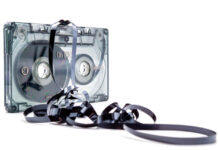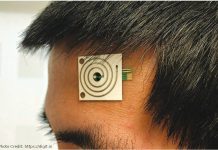![]() Researchers at the Southampton University have announced the development of a new type of nanostructured glass technology.
Researchers at the Southampton University have announced the development of a new type of nanostructured glass technology.
This kind of glass has the ability to optically store data forever. The research team has created monolithic glass space – variant polarization converters.
Once imprinted on the silicon glass, the converter is prepared to alter the polarization of ultra short pulses of laser light passing through them. Then the pulses proceed to imprint into the silicon glass tiny dots, sort of like 3D pixels called- voxels.
The silicon glass could be read also by a laser, that moment the voxels produce tiny whirlpools of light, as a property of the polarity of the laser pulse that created each voxel. As like light pulses in optic fiber cables, the differing voxel whirlpools represent individual bits of data. This information can be written, erased and rewritten into the structure of glass and keep it forever.
The converters could also be used for optical manipulation of atom sized objects, ultra high resolution microscope imaging and even top particle accelerators. The Southampton University is working with Lithuanian company Altechna to sell this technology.
Researchers at the Southampton University have announced the development of a new type of nanostructured glass technology. This kind of glass has the ability to optically store data forever. The research team has created monolithic glass space – variant polarization converters.
Once imprinted on the silicon glass, the converter is prepared to alter the polarization of ultra short pulses of laser light passing through them. Then the pulses proceed to imprint into the silicon glass tiny dots, sort of like 3D pixels called- voxels.
The silicon glass could be read also by a laser, that moment the voxels produce tiny whirlpools of light, as a property of the polarity of the laser pulse that created each voxel. As like light pulses in optic fiber cables, the differing voxel whirlpools represent individual bits of data. This information can be written, erased and rewritten into the structure of glass and keep it forever.
The converters could also be used for optical manipulation of atom sized objects, ultra high resolution microscop imaging and even top particle accelerators. The Southampton University is working with Lithuanian company Altechna to sell this technology.
Are we going back to engraved stone tablets? In a different way probably yes.



